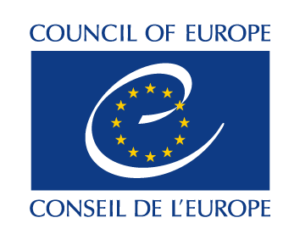-
16-10-23 | 17:08
Development of IG ecosystem | Innovation & economic issues | Technical & operational issues
Who owns the Internet? A lot has changed on the Internet in the last ten years: It's not just applications and business models that have emerged or evolved. Less obvious, because hardly recognizable to many users, the architecture of the Internet has also changed fundamentally. The long-cherished model of a decentralized Internet infrastructure, in which thousands of different networks are involved in transporting the world's data traffic, is losing importance. Today, the lion's share of traffic flows through proprietary backbone networks and content delivery networks owned by large Internet companies and hyperscalers. This drastic shift in traffic from the public Internet to private networks has fundamentally changed the Internet ecosystem and led to a significant concentration of market power in the engine room of the Internet. The growing disparity between the public Internet and large private networks calls for a reassessment of existing policies and regulatory frameworks in Europe and beyond. Policymakers might choose strategies based on industrial policy goals to counter trends of global private networks emerging as dominating platforms. Such policies might also focus on other aspects such as cloud and data sovereignty, data governance, and data sharing.
-
- Submitted by
- Miguel Vidal
- Affiliation
- Deutsche Telekom
- Stakeholder
- Private sector
-
17-10-23 | 05:35
Access & literacy | Human rights & privacy | Innovation & economic issues
What is the status of the European inter-country medical records system development with respect to ease of data sharing, accessibility, privacy, research collaboration etc.? What are the emerging issues and how are accomodations for minority groups with language, accessibility or income limitations being managed for equal quality access?
-
- Submitted by
- Amali De Silva-Mitchell
-
17-10-23 | 15:51
Access & literacy | Development of IG ecosystem | Human rights & privacy
What are the new developments in Virtual Reality, Augmented Reality and other emerging and advanced features of human to computer interaction assisting the ecosystem of ehealth, health research and health education? What issues must be resolved to enable the use of these advanced features ? Are there any risks associated with using these features ? How can equality of access for All UN SDG 3 Health and Wellness for All e.g. accessibulity, be enabled using these features ?
-
- Submitted by
- Amali De Silva - Mitchell
- Affiliation
- IGF Dynamic Coalitiin on Data Driven Health Technologies
-
19-10-23 | 15:11
Innovation & economic issues
Large language models (LLMs) have become an increasing part of artificial intelligent tools such as ChatGPT. The development has been significantly disruptive to sectors such as education and law, forcing key stakeholders to ask questions about the opportunities and dangers the developments pose to their respective industries. This issue for EuroDIG 2024 relates to whether LLMs, together with comparable technologies in the field of image generation, are compatible with copyright law in Europe? Will such tools increase, have no effect or decrease innovation in the creative sector?
-
- Submitted by
- Babatunde Onabajo
- Affiliation
- ChurchMapped Limited
- Stakeholder
- Private sector
-
20-10-23 | 09:10
Development of IG ecosystem | Innovation & economic issues | Technical & operational issues
Dataspaces
The 2020 EU Data Strategy envisages the creation of EU-wide dataspaces covering key policy themes. The dataspaces are to allow public and private actor to harness third-party data within the rules set by GDPR, the Data Governance Act and the forthcoming Data Act (among other legislations) to provide citizens with services and to make policies. However, the implementation of such dataspaces is lagging and the EU, despite its regulatory effort, remains uncompetitive compared to countries like China or the US due to a lack of a world-leading domestic industry. Furthermore, legal clarity is lacking as the data-related legislation is still emerging.
I believe discussing this topic is of timely relevance to foster the creation of a data governance ecosystem that supports decisionmaking based on data.
-
- Submitted by
- Riccardo Nanni
- Affiliation
- Fondazione Bruno Kessler
- Stakeholder
- Technical community
-
20-10-23 | 11:09
Human rights & privacy
The last two years have seen a proliferation of declaratory documents on Internet rights and principles across the European continent (and beyond), such as the EU's "European Declaration on Digital Rights and Principles for the Digital Decade", Portugal's "Charter for Human Rights in the Digital Era (Carta Portuguesa de Direitos Humanos na Era Digital)" or Spain's "Digital Rights Charter (Carta Derechos Digitales)". There may be more such documents by the time EuroDIG takes place in Vilnius. These documents have the ambition to shape how human rights and fundamental governance principles concerning the Internet and digital technologies are being protected in Europe. We need to discuss how these charter documents are being implemented across the continent and what divergent provisions tell us about national emphases and priorities. We also need to discuss how different stakeholders can take ownership of these documents and implement them in their respective domains (e.g. companies building or deploying social media tools or algorithms, local councils protecting their citizens and civil society groups in their many forms).
-
- Submitted by
- Dennis Redeker
- Affiliation
- Digital Constitutionalism Network
Planning process: Call for issues

